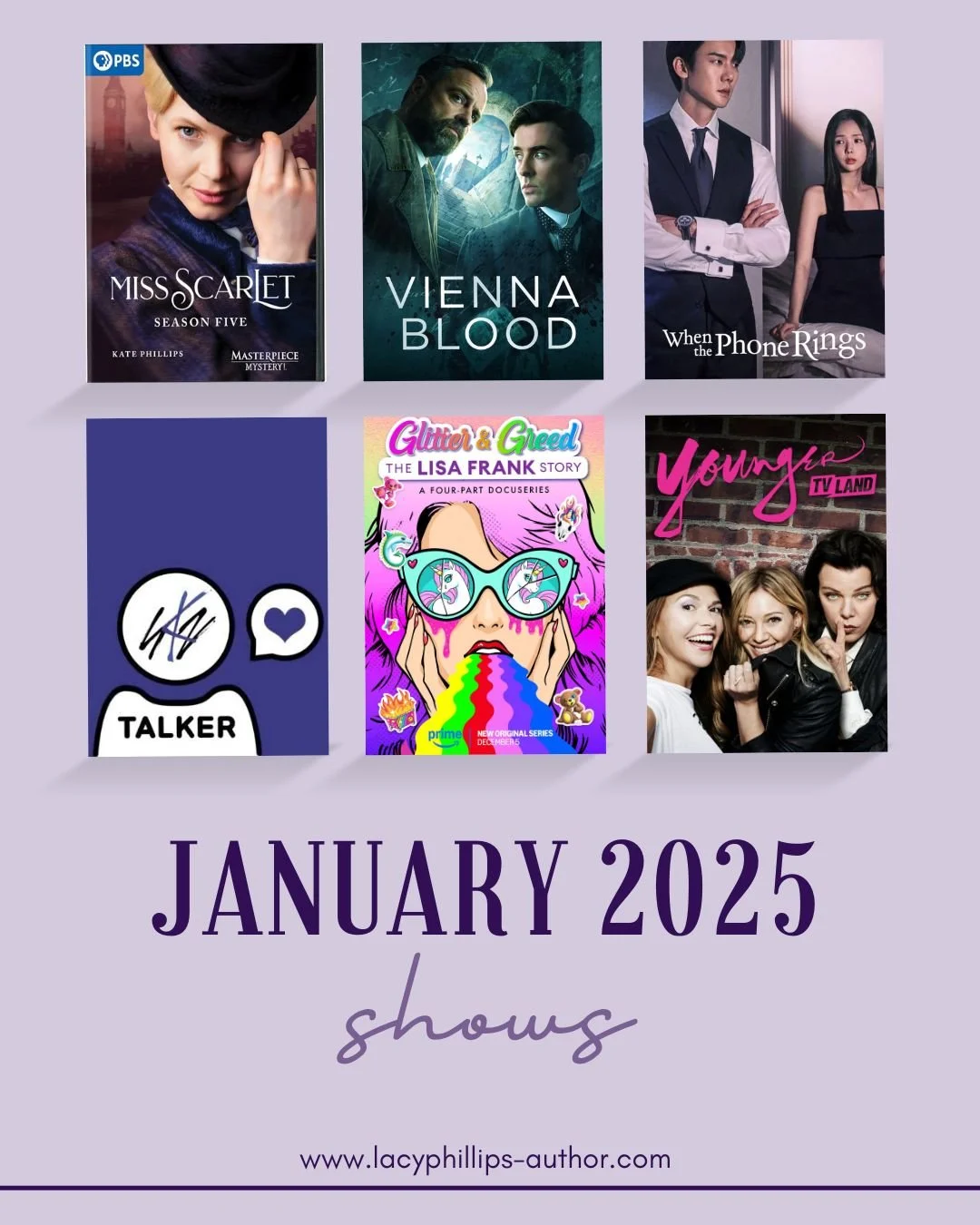My January reads:
Drop Dead by Lily Chu
Zapped: From Infrared to X-rays, the Curious History of Invisible Light by Bob Berman
Because Fat Girl by Lauren Marie Fleming
Valley Verified by Kyla Xhao
Sing Like Fish: How Sound Rules Life Under Water by Amorina Kingdon
Fire Weather: A True Story from a Hotter World by John Vaillant
I had a lovely brunch with a friend at Nami in Louisville, KY where we gushed about how much we loved rival journalists Wes and Nadine in Lily Chu's latest book Drop Dead. I always enjoy Lily's writing. Her book The Comeback literally changed my life!
Fire Weather was the book club discussion read for the Science Friday Book Club and was incredibly timely considering the LA-area fires that happened this month. I thoroughly enjoyed the Q & A with the author who addressed my question!
Zapped and Sing Like Fish were other pop sci picks for January. I tend to read a lot of nonfiction on science and technology. Both of these were informative while Sing Like Fish was occasionally charming.
Valley Verified was something I read as research for a writing project I’m working on. There were surprising moments and some excellent characterization in the story. I did genuinely find it swoony, so that was a plus.
Because Fat Girl was the Fat Girls in Fiction book club discussion book for January. I generally enjoy fame-adjacent themes, so this one was enjoyable. I tended to find it more frustrating than most of the group, but I think that’s because I find romances that trend more toward the cozy genre to be a bit duller than books with more subplot and complications. I found the resolutions too tidy, but that’s just a personal preference of mine.
My January watches:
Season 5 of Miss Scarlet
Season 4 of Vienna Blood
When the Phone Rings
SKZ Talker
Glitter and Greed: The Lisa Frank Story
Younger
This month I finished up the k-drama When the Phone Rings which had such a great premise, but ultimately I wanted to like it more than I did.
I also caught up with the latest seasons of some of my Masterpiece Theater favorite series. Miss Scarlet is no longer Miss Scarlet and the Duke and I have to say they've pulled off the transition of losing a title character quite well. I'm pleased!
I can't recommend Glitter & Greed: The Lisa Frank Story more. For us 90s kids, Lisa Frank was a cultural touchstone, and it's good to know more about the bad practices going on behind the scenes.
SKZ Talker has returned on YouTube with the first behind the scenes reality shows of Stray Kids' DominATE World Tour, which of course I have to watch since I have tickets for multiple tour stops.
And I finished out the month with a serious binge watch of Younger. My publishing friends and I keep screaming in our group chat about how the way the show portrays the publishing industry is not at all how things work! Is this how doctors feel while watching medical dramas??
I found “Sun” randomly on Reels during a cold snap when the temperatures had been below freezing for weeks and even dipped into the sub zero territory for a few days, so it was a timely find. The lyrics “The more I try leaving my cage / It doesn't feel safe” lead into the chorus of “A little bit of sun / Is what I need / A little bit of air / So I can breathe / I just need a distraction / From all of the madness / It's all that I'm asking / I just want a little sun” was the perfect time capsule of January 2025.
To keep myself optimistic, I kept putting on OK Go’s latest single, “A Stone Only Rolls Downhill”. The repeating chorus “I wish I could say it would all be alright (It'll all be alright) I wish I could tell you it would all be fine (It'll all be just fine)” felt like the reassurance I need to counter all of the bleak headlines. I really recommend this one, and definitely also check out the characteristically innovative music video.
Seeing Woosung sing “Before We Die” in early November of last year was a genuinely transformative experience and I’m still reliving that moment he locked eyes with me while singing the openings line “we came from somewhere far away” after I’d dragged my heavy heart through three airports just that morning to get to the show. I don’t think I can adequately describe how impactful it was to cry my way through the breakup songs on the 4444 album just hours after making the decision to, effectively, break up with an entire country and emigrate to the Netherlands, and then scream out my frustrations with my day job as a social media manager during “Modern Life”. I got the opportunity to tell him after that show that I felt like it had added 10 years to my life, and I meant it. Maybe each repeat listen to “Before We Die” adds a few more days, too.
“Hold My Hand” is a song I perhaps love for the live performance aspect more than anything. I can’t wait until it’s my turn to see Han run through the rainbow confetti during the breakout chorus and scream along to “Every time I see you cry, I felt like drowning in the dark / You said it's fine but no I'm not / 'Cause all I want is you, not your tears / 눈물이 마를 때까지 / I wanna make you the happiest one, no fear / So, baby, hold my hand now”. But in any case, the message in the lyrics is a balm for all of us who could use reassurance and unconditional support in these fearful times.






